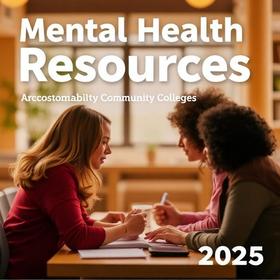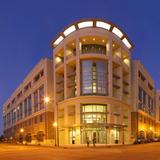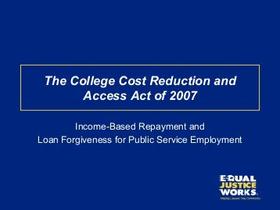- The mission of Brunswick Community College, a public, two-year educational institution, chartered in 1979 and centrally located in Brunswick County, North Carolina, is to provide accessible and affordable programs and services that meet the educational and cultural needs of the community and to provide opportunities for individuals to be successful.
School Highlights
Brunswick Community College serves 2,295 students (33% of students are full-time).
The college's student-teacher ratio of 8:1 is lower than the state community college average of 13:1.
Minority enrollment is 31% of the student body (majority Black and Hispanic), which is less than the state average of 48%.
Quick Facts (2025-26)
- Enrollment: 2,295 students
- In-state tuition: $2,404
- Out-state tuition: $8,548
- Student-teacher ratio: 8:1
- Minority enrollment: 31%
- Source: Integrated Postsecondary Education Data System (IPEDS)
School Overview
The teacher population of 296 teachers has stayed relatively flat over five years.
Brunswick Community College
(NC) Community College Avg.
Carnegie Classification
Associate's Colleges: High Transfer-Mixed Traditional/Nontraditional
Associate's Colleges: Mixed Transfer/Career & Technical-High Nontraditional
Institution Level
At least 2 but less than 4 years
At least 2 but less than 4 years
Institution Control
Public
Public
Total Faculty
296 staff
256 staff
School Calendar
Student Body
The student population of Brunswick Community College has grown by 44% over five years.
The student-teacher ratio of 8:1 has increased from 5:1 over five years.
The Brunswick Community College diversity score of 0.49 is less than the state average of 0.66. The school's diversity has declined by 10% over five years.
Total Enrollment
2,295 students
2,579 students
Student-Teacher Ratio
8:1
13:1
# Full-Time Students
749 students
766 students
# Part-Time Students
1,546 students
1,813 students
# Enrollment Undergraduate
229 students
316 students
# Full-Time Undergraduate Students
749 students
766 students
# Full-Time Graduate Students
n/a
22 students
# Part-Time Undergraduate Students
1,546 students
1,990 students
# Part-Time Graduate Students
n/a
3 students
Total Dormitory Capacity
n/a
717 students
% American Indian/Alaskan
1%
1%
% Asian
1%
3%
% Hispanic
9%
13%
% Black
11%
21%
% White
69%
52%
% Hawaiian
3%
1%
% Two or more races
4%
3%
% Non Resident races
n/a
1%
% Unknown races
2%
5%
Diversity Score
0.49
0.66
College Completion Rate (Students who graduate in less than 4 years)
40%
37%
College Completion Rate (Students who graduate in 4 years or more than 4 years)
n/a
43%
Average Graduate Earnings (10 Years)
$27,400
$27,500
Tuition and Acceptance Rate
The public in-state tuition of $2,404 is less than the state average of $3,915. The in-state tuition has declined by 5% over four years.
The public out-state tuition of $8,548 is less than the state average of $9,508. The out-state tuition has stayed relatively flat over four years.
In-State Tuition Fees
$2,404
$3,915
Out-State Tuition Fees
$8,548
$9,508
Tuition Notes
in_state:$76.00/hour
out_of_state:$268.00/hour
% Students Receiving Some Financial Aid
78%
82%
Median Debt for Graduates
n/a
$11,865
Median Debt for Dropouts
n/a
$5,846
Acceptance Rate
n/a
82%
SAT Reading
n/a
488
SAT Math
n/a
498
ACT Composite
n/a
20
ACT English
n/a
13
ACT Math
n/a
16
Source: 2024 (or latest year available) Integrated Postsecondary Education Data System (IPEDS) , School Administrators
School Notes
- Brunswick Community College is a tax-supported, public, nonprofit school under the control of a board of Trustees. It was established by the North Carolina Legislature in July 1979 under provisions of the General Statutes of North Carolina. It is supervised by the North Carolina Community College System and the North Carolina State Board of Community Colleges. Brunswick Community College was chartered as Brunswick Technical Institute. On May 1, 1979, the General Assembly passed a bill to permit technical institutes to change their names to technical colleges with the approval of the Board of Trustees and the Brunswick County Board of Commissioners. On October 5, 1979, the Board of Trustees, with the approval of the Brunswick County Board of Commissioners, voted unanimously to change the name of the institution to Brunswick Technical College. The College received its initial accreditation from the Southern Association of Colleges and Schools in 1983. In 1988, the College's name was changed to Brunswick Community College to reflect statewide changes in community colleges. At Brunswick Community College, our students discover their career potential through a varied curriculum. Get the technical skills needed to take advantage of expanding career opportunities in Health Care, Information Technology, Business Technology and Public and Personal Service. Begin your journey into the world of Arts and Sciences while completing the equivalent of the first two years of a four-year college degree at a fraction of the cost. Technical programs prepare students for entry-level jobs in paraprofessional fields. With experience, many technicians move into professional and managerial positions. Most technical programs are two years in duration and must contain a basic core of 15 semester hour credits (SHC) of general education courses. The core must include two communication courses and at least one course from each of the following areas: humanities/fine arts, social/behavioral sciences, and natural sciences/mathematics.
Frequently Asked Questions
How much does Brunswick Community College cost?
Brunswick Community College's tuition is approximately $2,404 for In-State students and $8,548 for Out-State students.
Recent Articles

Community Colleges in 2025: Combating Stereotypes with Impact
Updated insights on how community colleges are dispelling myths, growing enrollment, and expanding pathways in 2025.

2025 FAFSA Changes Explained for Community College Students
A comprehensive guide to 2025 FAFSA changes, what community college students must know, new eligibility rules, timelines, and tips to maximize federal aid.

Mental Health Resources at Community Colleges 2025
A 2025 review of mental health resources at community colleges, covering counseling services, teletherapy, funding trends, and best practices.










